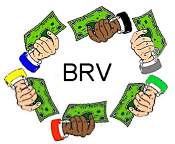|
Different uses for voting
need different types of voting. |
 |
Budget VotesBalancing Interests. |
 |

Fair shares let everyone influence the ongoing budgets.
Humor 7 for pols: In January, 1996, he declared: “The era of big government is over.”
1) Vaclav Havel, 2) Bill Clinton, 3) Helmit Kohl, 4) George Bush ?
Democracy's Tragedies and FailuresOld voting rules give all spending power to the majority and none to minorities, including the major opposition party. When the majority shifts from one group to another, an agency's budget may gush or go dry, either way abruptly reducing its efficiency.With old budget-setting rules, the sequence of decisions is crucial because early decisions may use so much money that not enough is leftover for the departments funded last. Opponents may set a “starvation” budget on purpose, giving an agency just enough to keep going but not enough to succeed. After a few poor years, most voters will think it is a worthless agency wasting what little money it gets. Most will blame the party they identify with the agency, not the party that reduced its budget. This strategy wastes the taxpayers' money, their potential benefits from a public good, and their respect for government in general -- so it is used most often by those opposed to democratic control of the public sphere. Free riding is common now in budget setting rules; new rules need to discourage it. Free rider analogy: A clean kitchen is a public good for all who share it, but a lazy fellow can get a free ride on other people's cleaning work if the household rules allow him to. This often leads to resentment, cynicism, and a kitchen that is dirtier than anybody honestly wants it to be. Thus free rides may lead to unfair distributions of costs (work) and resources (free time) and to less of the public good (cleanliness) than is optimal. The task of voting to fund agencies echoes voting to fund projects, so the problems above should sound familiar. But there is a basic difference: voting zero is OK when it means not supporting an optional project, program or purchase. It is not OK when it means free riding, shirking one's share of the costs for essential services. The difference between optional vs. essential might be the difference between choosing to pay for city-park roses and tulips versus maintaining city sewage and water systems. But there is no clear line of distinction. City roses are essential to the annual Rose Festival in Portland Oregon. The festival is a major source of government revenue, some of which funds essential services. So the Festival's roses are essential now. The big money is here, setting the annual budgets of large departments in a co-op, college, community or country. Most large departments have optional, essential and mandatory budget items. The optional items are best selected by the fair-share voting rule in the previous chapter. The mandatory items are contractual obligations. Hopefully, they were voted on just before the contract was made. They may not be cut. This chapter looks at adjusting the relative budgets for essential services. Democratic SolutionsRobert Tupelo-Schneck invented the best Fair-share Spending rule. His method works with agency budgets as well as projects. For choosing the optional parts of ongoing budgets, it is in better than the budget rules in this chapter. But real-world testing, repeated over several years, has shown us it might not be the best for adjusting the essential items in an ongoing budget.When adjusting the essential ongoing budgets, there are several questions a rep must consider and express on her ballot. Which departments does she want to increase or decrease and by how much? Does a change in one department simultaneously affect the budget needed by another? Which changes are most important? Each of the ongoing budgets is going to get its minimal level of funding. A typical voter may misunderstand that; he might feel his ballot allots money to each budget, not that he is, in fact, ranking his priorities. He may be surprised when few of the many little agencies win any increase in funding from the voting, thinking, "After all, I voted for it; so why didn't it increase by the amount I voted for it." (But with projects, he knows some are not going to win any funding. So he is not surprised when few of the many little projects win.) Hammer's Budget ProcessHenry H. Hammer proposed letting any group of [five] or more members endorse a set of budgets for all departments. To minimize sharply- defined factions with hardened positions, a voter may endorse a limited number of economic plans.Hopefully each group comes up with a plan reflecting their values and their meetings are quick. Each plan becomes one of the candidates for all voters to rank in a Condorcet Pairwise tournament tally. And the winner is... a reasonable budget with majority support. One advantage of the Hammer Budget Process is its affect on proposals. As always, some people exaggerate their own needs hoping to influence others' assessment of those needs. But people who want their plan to win, strive to understand what other voters want and to moderate their own demands. Professor Hammer made no claim that the winner would be optimal in any sense (Pareto or Nash), only that it would be a coherent plan with majority support. While this rule does not try for consensus, it does minimize number crunching and maximize human judgment and creativity for finding win-win solutions. There are counter arguments to using Hammer's Budget Process:
Other rules, such as Fair Share Voting or those below, may contribute another economic plan to the final Condorcet ballot. In Hammer’s Budget Process, small groups propose budget plans and a Condorcet Tally picks one plan. (FSV might create one plan.) It is a good process to use if the costs of the items vary by more than ten to one and if no big group can dominate the Condorcet Tally.2 All members could have fair shares of power for influencing the final adjustments of the budgets for departments. The reasons are the same as those given in the previous chapter on fair-shares rules for selecting projects. But the voting method here is very different because: 1) Selecting projects requires eliminating some items but funding ongoing agencies does not. 2) A rule for agency's budgets must deter reps from exaggerating their preferences with extremely high or low votes. 3) A rule may let reps adjust their allocations repeatedly, deciding whether to add money where others have removed money and vice versa. A Tally Analogy
MeritsThe merits of widely sharing the power to fund agencies are similar to those in fair-share spending for projects, including decreasing free rides, therefore increasing the public good provided while decreasing cynical, waste and corruption.Coalitions and Fair-Shares for Agency BudgetsFair-share rules by definition must guarantee some budget power for large minorities. But if a few reps raise a budget too high, others can reduce their own grants for that agency to bring its budget back down. Thus a small group acting alone has little power.The minority that gains the most is the major opposition party. Say that party raises the budget for public health. The majority party may counter by lowering its grants, giving the money to other departments. The opposition party might decide to increase its grants again and so use up more of their own cards. The value of cards given to each rep can be set to let a large minority prop up a few agencies. A large majority that loses a seat remains a majority. Under the old winner- take- all rules it would still control 100% of the budget. But with fair-share rules it loses some spending power. Every seat won or lost is important when all reps share power. Thus the general election more accurately affects budgets. And citizens can see that, increasing their motivation to vote. Some tally rules explained in the math pages create strong incentives to form coalitions. These are limited by voter approval. A voter can see his rep's grants. If many are disagreeable, he may prefer another rep in the next election. Reps are individually responsible and accountable for their use of public funds. Contrast this with the convoluted series of votes and backroom deals that now lead to budgets for governments and organizations. |
| A voter can see his rep's grants. | 
|
|
Opposition parties often announce they would increase spending for education or health care or whatever their voters want. But if they were in power, they might do what their corporate allies want. Fair-share rules make each politician do, not promise to do. A pundit might say these voting rules force reps to "act, not yak." Spending bills are often among the most contentious of all legislation. Fair shares change that because reps cannot overwhelm rivals to seize their share of the budget. They must persuade or trade with each another as equals in order to get more of what they want. A redistribution of spending power can affect government programs. Every agency should spend its budget on programs enacted by a majority voting rule. But too often, policies are not implemented due to a lack of funds. Two examples: the number of inspectors enforcing U.S. anti-pollution laws dropped 20% in 2001-2002 because the conservative administration favored factory owners' wealth over public and employee health. And in Mexico, NAFTA has lead to over 3,000 factories near the U.S. border, but just a handful pollution inspectors, who would need several years to inspect that many factories. The budget rules in this section are not elimination procedures; so they cannot select and reject candidates, policies or projects. The down arrow links to pages with tally details and free software to test budget rules. The right arrow takes you to PoliticalSim and more free software.
|
 Previous use of voting |
 Home voting overview |
 Map & site search |
 Tools to tally budgets |
 Explore this interest |
 Next voting topic |
 |

 |
Yes
 Yes
Yes Yes
Yes
Answer:
Yes, President Clinton did reduce the federal workforce and deficit
— even so he must have had an
unusual definition of the word "big".
|
Searching for more? There are many terms used for setting budgets: budget setting , budget process, expenditures, allocations, funding |
| Search Terms | Adjectives | |||
|---|---|---|---|---|
| Nouns | Allocation | Budget | Funding | |
| Rules | Allocation rules | Budget rules | Funding rules | |
| Systems | Allocation systems | Budget systems | Funding systems | |
| Methods | Allocation methods | Budget methods | Funding methods | |
| Procedures | Allocation procedures | Budget procedures | Funding procedures | |
| Tally | Allocation tally | Budget tally | Funding tally | |
| Votes | Allocation votes | Budget votes | Funding votes | |



